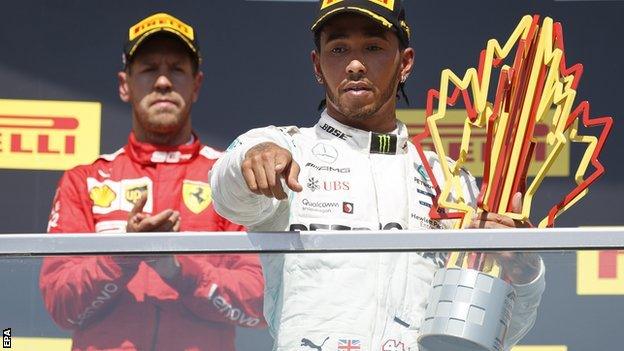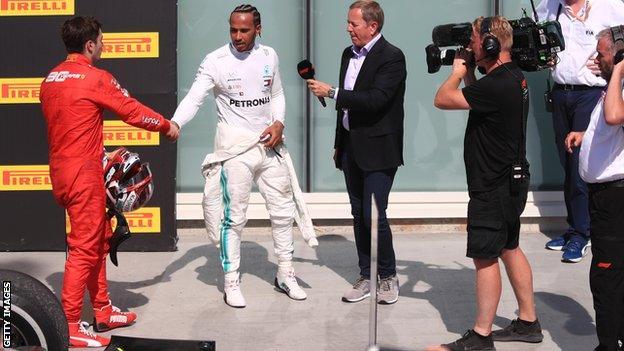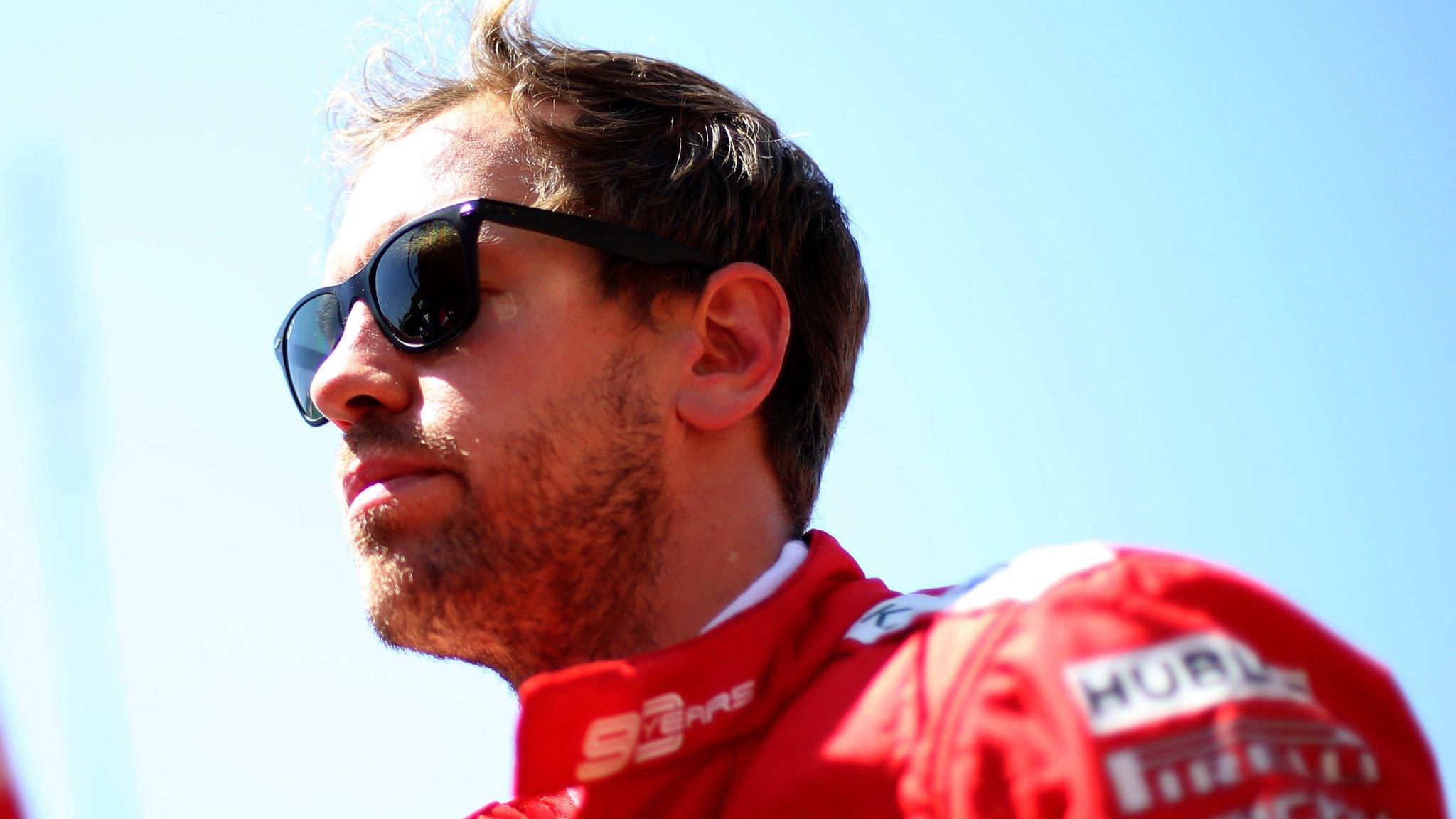Sebastian Vettel: F1's rules-for-everything culture led to Canada penalty, says GPDA boss
- Published
- comments

Vettel believes F1 has lost its way as the Canadian Grand Prix fallout continues
Formula 1 is at fault for creating a culture in which Sebastian Vettel was penalised in Canada, Grand Prix Drivers' Association chairman Alexander Wurz says.
Wurz believes the desire of drivers and teams for clarity on permitted driving actions was to blame for the penalty.
"We want rules for each and every thing and that's where we arrived," he said.
Wurz said stewards acted consistently in penalising Vettel, a decision that cost the Ferrari driver victory.
The Austrian - a former Benetton, McLaren and Williams F1 driver and two-time Le Mans winner - said he did not believe Vettel's actions should have incurred a penalty but praised the stewards for acting based on precedent.
Vettel won the Canadian Grand Prix on the track on Sunday but was demoted behind Lewis Hamilton when he was given a five-second penalty for dangerous driving in his battle with the Mercedes driver.
Vettel reacted furiously to the decision and Ferrari have said they will appeal against it.
Wurz said drivers and teams had created a culture in which they had demanded so much precision from governing body the FIA that the stewards were left with no room for judging individual incidents on their merits.
The 45-year-old told BBC Sport: "Each and everyone in the system who thinks this penalty is not justified is at fault because over the years, with all these incidents and cases, the drivers and team managers asked the FIA in the open way of discussion for clarification of what is allowed and not - down to millimetre and micrometer movements. I take part in all the drivers' meetings.
"In this whole process over the years, that is where we arrived.
"The just, rational decision of looking at a situation and making a decision based on, yes, underlying rules, but not in such fragmented, small little details, has gone.
"So it is hard to blame the FIA and the stewards for this, and this is what I don't like in the conversation - that it goes a bit personal in this whole debate.
"We are an industry that strives for the ultimate perfection, advantage or disadvantage and penalty or not penalty. So we arrive at such a situation. One struggles almost to judge one situation without having to refer to six or 10 other similar situations.
"In reality each and every situation is different because there are so many influences."

Hamilton has won five of the seven races so far this season
A decision that followed precedent
Wurz, who is central to discussions between drivers, teams and F1 bosses on matters related to racing, added: "You could see it was sort of physics, going over grass, correcting the car until well back on track in a logical trajectory. Hence it wasn't intentional to close the door and squeeze Lewis.
"Of course, if you push it to the limit, one driver makes a mistake, if the mistake is in front of you, you have to react. If you make it by, great, if you don't make it by, missed opportunity. It's the name of the game. It's racing.
"I was of the same opinion when Max Verstappen in Suzuka last year went over the Astroturf - which is a bit more slippery, there is more dust - he came back, he slid to the other side of the track, there is Kimi Raikkonen wanting to go on the outside and they touched. Max got a five-second penalty.
"When you look at this, you say, 'Ah, well the FIA is in this case quite consistent on rejoining the track dangerously regardless of whether it's in your capability to control or not. They have decided it is a five-second penalty'.
"I have also to stress to give the FIA - the four stewards in Canada - credit that they reacted during the race and they are not dragging out to a discussion after the race.
"They could have easily hidden away under the pressure and said, 'No we're not going to give a penalty now, we're investigating'.
"But they are trying to act swiftly, which the entire industry has always asked them to do."
Should it be a penalty?
Wurz said that, applying the rules to the letter, he believed it was "50-50" as to whether Vettel had committed an offence.
And he rejected the argument that Vettel committed an offence either way, because he had either rejoined the track dangerously or had deliberately impeded Hamilton.
Wurz said: "That is a really dangerous argument and dangerous direction because it means you are penalising the mistake itself.
"How many times is there a chicane with asphalt run-off and someone goes off and comes back on and nothing happens? So if you start to penalise for that, we are on a PlayStation and going into a direction we should definitely not go.
"Then you have to see in racing if you are close to someone and he has power oversteer and he has to lift and he is perfectly not off the track, or he bottoms out on the kerb, that also makes the guy behind react in having to lift.
"That is racing in my definition, and you are sometimes unlucky when you are behind. So you can't penalise Vettel, in my view.
"Vettel has a certain speed going off into the grass. Of course at a certain point he will put the power back on, because he wants to continue his race. And that's his right to do.
"I don't think he drove in front of Lewis intentionally as aggressive as it might look on TV because his head moves to look in the mirror, after the correction is finished.
"Therefore I would have not seen it as action to be penalised, very much as I would have not penalised Verstappen in Suzuka either.
"However, both cases are very similar and FIA gave the same penalty, so we have to accept that."
- Published10 June 2019
